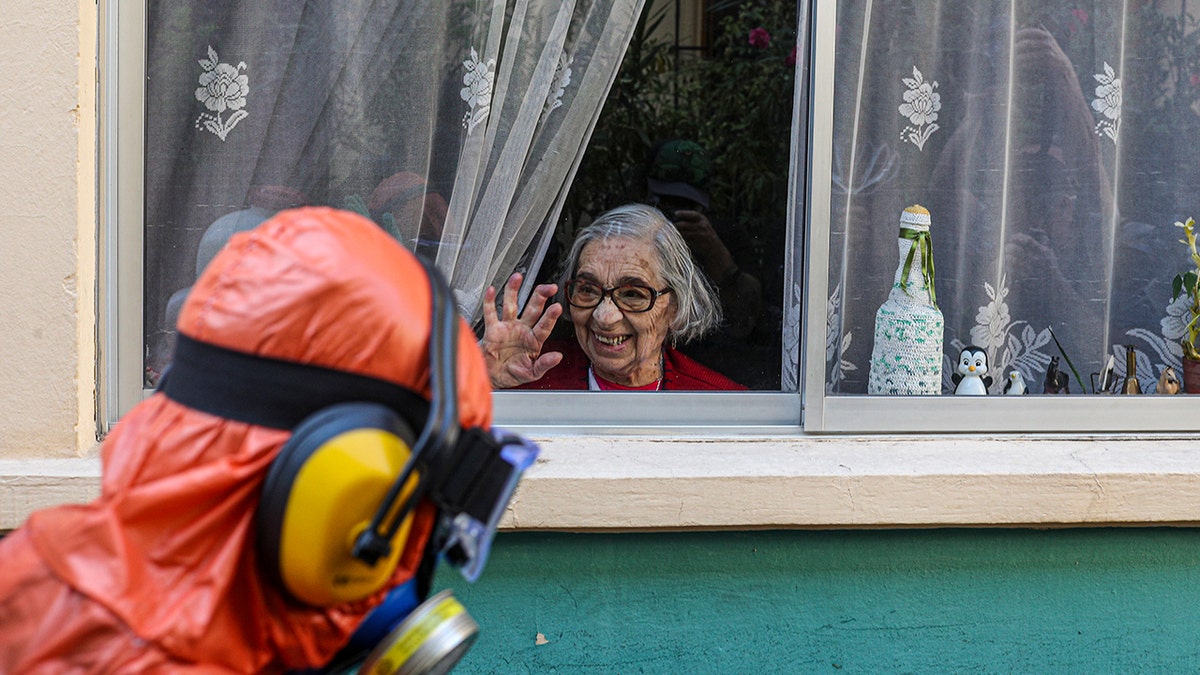Are antibody tests the key to returning to normal?
Dr. Vincent De Gennaro explains how antibody tests work and if they are the key to getting America back to work
Get all the latest news on coronavirus and more delivered daily to your inbox. Sign up here.
Chile announced Sunday it would be introducing “release certificates” for those who have recovered from the coronavirus as part of its plan to ease lockdown measures and get people back to work.
This comes after the World Health Organization on Friday warned against issuing “immunity passports,” arguing there was “no evidence” someone who retested negative couldn’t become infected again.
Paula Daza, sub-secretary of Chile’s Health Ministry, told reporters Sunday the certificates would not confirm someone’s immunity, but rather would state that individual had recovered from COVID-19 after completing a period of self-isolation, according to the BBC. She also said evidence suggested those who recover from the novel illness are at a reduced risk of reinfection.
CLICK HERE FOR FULL CORONAVIRUS COVERAGE

A woman waves to a city worker dressed in a hazmat suit as he disinfects the streets in her neighborhood as a precaution against the spread of the new coronavirus, in Santiago, Chile, Wednesday, April 15, 2020. (AP Photo/Esteban Felix)
"One of the things that we know is that a person who has had the illness has a lower probability of becoming ill again," Daza said. “It is very important, and I want to reiterate, that we have not talked about an immunity card.”
Chile’s Health Ministry Jaime Manalich first mentioned a potential plan for the “release certificates” earlier this month, claiming the papers would indicate those who recovered from COVID-19 were, “freed from all types of quarantine or restriction, specifically because they can help their communities enormously since they pose no risk,” Reuters reported.
In its latest scientific brief published Friday, the WHO argued “immunity passports” or “risk-free certificates” could lead people to assume they are immune to a second infection and ignore public health advice, therefore, increasing the risks of continued transmission.
“There is currently no evidence that people who have recovered from COVID-19 and have antibodies are protected from a second infection,” the brief said.
The WHO explained that some people who have recovered from COVID-19 have antibodies in their blood, which could “prevent progression to severe illness or re-infection by the same virus.”
“However, some of these people have very low levels of neutralizing antibodies in their blood, suggesting that cellular immunity may also be critical for recovery,” the brief continued. “As of 24 April 2020, no study has evaluated whether the presence of antibodies to SARS-CoV-2 confers immunity to subsequent infection by this virus in humans.”
CLICK HERE TO GET THE FOX NEWS APP
The WHO said it supported the many countries now testing for SARS-CoV-2 antibodies at the population level or in specific groups, such as health workers, close contacts of known cases, or within households.
It said these studies “are critical for understanding the extent of – and risk factors associated with – infection” and would “provide data on the percentage of people with detectable COVID-19 antibodies, but most are not designed to determine whether those people are immune to secondary infections.”
Chile entered lockdown in mid-March within days of identifying its first coronavirus infections. The country has recorded at least 13,331 confirmed cases, with at least 189 deaths as of Monday, according to Johns Hopkins University.








































